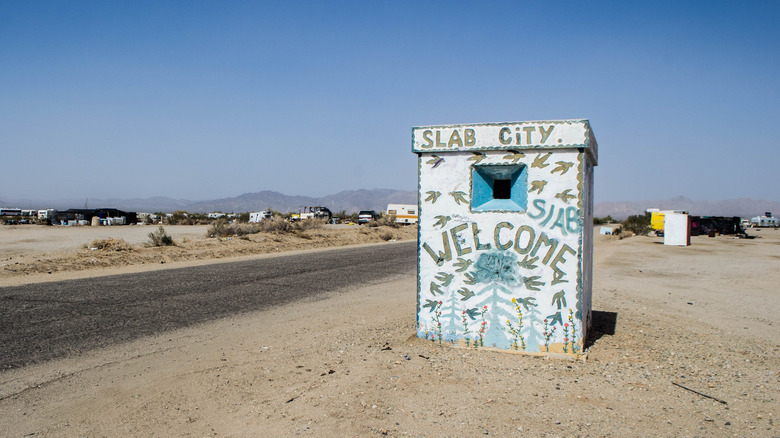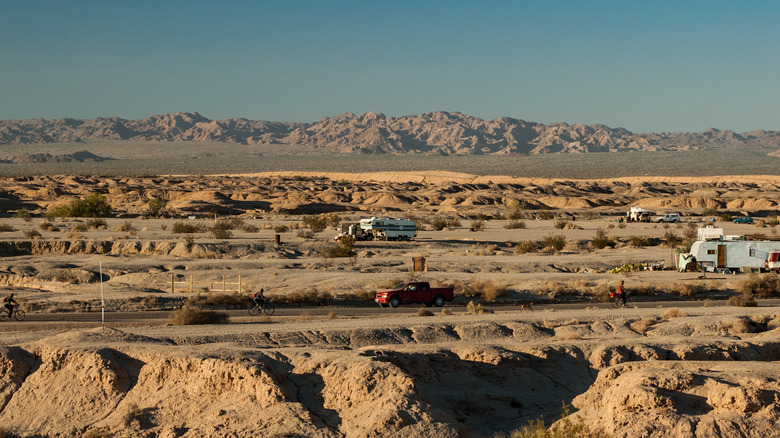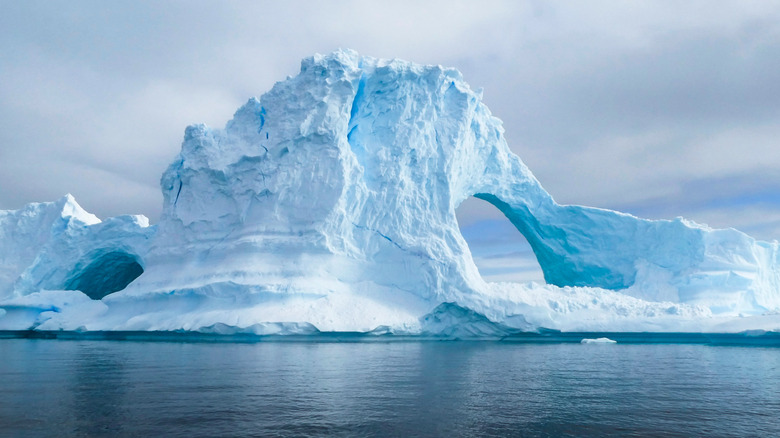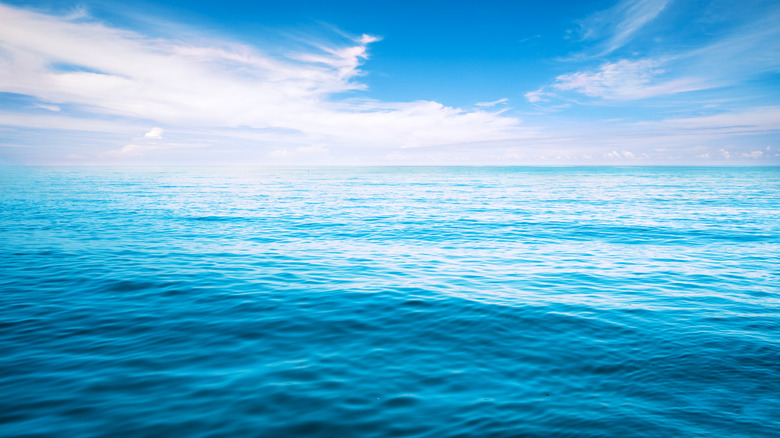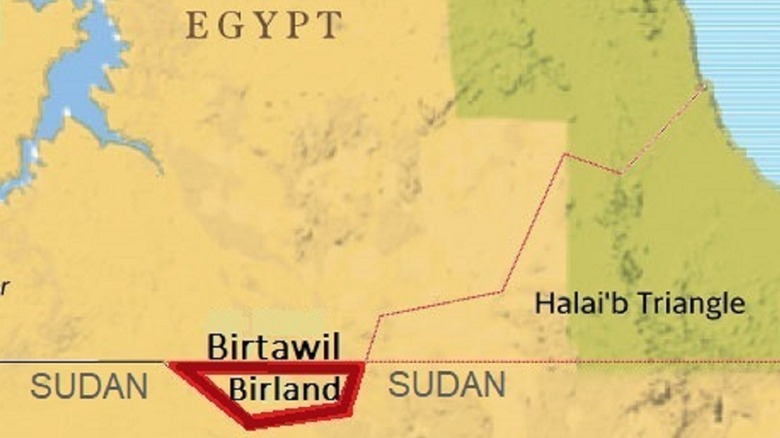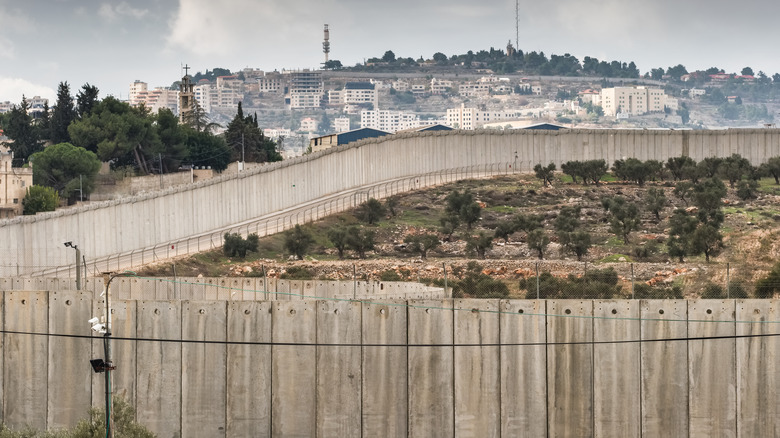Places On Earth That Have No Laws
Laws are present to protect people. Although we have the freedom to do as we please, laws are there to govern society and to prevent abuse. The absence of laws means there are no standards to uphold. Imagine living a life similar to the events of the movie "The Purge" where citizens are free to do as they please — torture, murder, rob, and other otherwise illegal activities — within a 12-hour period. Surprisingly, though, the concept of the film is based on history.
In ancient Rome, the Saturnalia holiday was a week-long celebration to honor Saturn — the Roman god of sowing (via History). During the week of Saturnalia, people are free to let loose and be mischievous without suffering the repercussions of their actions. A Lord of Misrule is chosen for a household, and they have a duty to wear weird clothes, insult their guests, chase people, and provide outrageous entertainment. The unrestricted merriment often ends up in extreme debauchery and violence, according to Looper. That is just one example of what could happen without laws.
Despite the majority of the world having laws that citizens have to follow, there are a handful of places that are lawless.
Slab City
Slab City — also known as The Slabs — spans 640 acres and is located in Imperial County, California. The large expanse of land was the site of Camp Dunlap, which was a U.S. Marine Corps base. According to ATI, the buildings were demolished in 1956, but parts of the foundations remained, and what was once a place filled with structures was left with concrete slabs. Workers from a nearby chemical company discovered the slabs and figured that it was a good place to start a settlement near their work. Over the years, more and more people settled in the area and formed their own community.
Although Slab City is part of California, the place is too isolated and not favorable for living. Thus, it was never developed. Today, Slab City remains lawless, and those who live there aren't governed by anyone. The area has no running water and electricity, and the people are left to fend for themselves, per Smithsonian Magazine. Despite all that, the city has some permanent residents numbering in the hundreds. Since there are no laws, those who choose to live there just show up and set up their home. Although there are no laws, the permanent residents have come to an informal agreement. As one resident said, "Here you don't mess with people's business unless they steal your s**t."
Antarctica
In 1959, The Antarctic Treaty was signed, which states that the continent can be used for scientific investigations and solely for peaceful purposes, but it remains free for everyone. The continent does not have any laws, save for several treaties that are enforced to preserve and protect the area and its wildlife. Legally speaking, the treaties are binding only for the countries that have signed them. For others, however, there are no laws in Antarctica (via Sawan and Sawan).
Antarctica has no governing body, which is logical, as it has been an isolated place for millions of years. Since its discovery, there have been no permanent residents, unlike other locations where there were indigenous inhabitants upon discovery. However, there are settlements used as temporary bases for researchers, who spend several months up to a couple of years to conduct studies and experiments, as reported by Cool Antarctica. In addition to those who visit the continent for scientific research, there are also thousands of tourists who flock there every year to see wildlife in their natural habitat.
International waters
International waters are also areas that have no laws. By definition, waters that go beyond 12 miles of a country are no longer under its jurisdiction. These waters are called the high seas, and per Legal Tools, anyone is free to navigate, fish, fly over, and lay pipelines and cables on these waters. However, the Convention of the High Seas ensures that illegal acts — such as murder and piracy — are tried under maritime laws. In cases of criminal acts taking place on international waters, the country where a vessel is registered will be responsible for taking action.
Despite no laws on international waters, however, it doesn't mean that people are free to do whatever they please. Criminals — if caught — often have to face the consequences of their actions in the country of their origin, the country of their victims' origin, or where they were caught, according to Technology. So, while the high seas are not owned by any nation, there are still guidelines and agreements between countries in place that give authority to apprehend criminals.
Bir Tawil
Bir Tawil is an unclaimed expanse of land that is situated near Sudan and Egypt, but neither country wants anything to do with it. It's quite difficult to reach the location, as it's in the middle of nowhere, and it's just an empty expanse of dry land, as reported by Atlas Obscura. Bir Tawil has no permanent residents; hence, it has no governing body. The reason that it is unclaimed stems from the dispute between Sudan and Egypt regarding where the border between the nations is situated. The disagreement has been going on for decades, and the land remains unclaimed.
However, there have been a few individuals over the years who have attempted to claim Bir Tawil. In 2014, Jeremiah Heaton of Virginia processed papers to claim Bir Tawil as a present to her daughter who wished to become a princess, as reported by the Washington Post. Claiming the land isn't as easy as signing the papers, though. As said by Anthony Arend of the Institute for International Law and Politics at Georgetown University, "only states can assert sovereignty over territory." To this day, Bir Tawil remains an unclaimed territory.
Ras Khamis
Ras Khamis is a neighborhood that sits between Israel and Palestine. Although it is claimed by Israel, there is a concrete wall that separates the neighborhood from the rest of the country. With the barrier in place, Ras Khamis can only be accessed by passing through land claimed by Palestine. With the situation, a lot of people wonder who really owns Ras Khamis, which is difficult to determine, since neither Israel nor Palestine seems to be governing the area, according to Eskify.
In 2016, it was reported that since no one takes control over the neighborhood, its citizens took matters into their own hands by collecting money from its residents to be able to pave roads. They have no choice but to develop Ras Khamis on their own. One resident said, "What are we to do? You've got to live. The state tossed us out. They just keep collecting municipal taxes. So what choice do we have?" (via Haaretz). In paper, Ras Khamis is supposedly Jerusalem's territory, but the barrier has forced residents to fend for themselves, leaving the neighborhood in limbo when it comes to laws.
